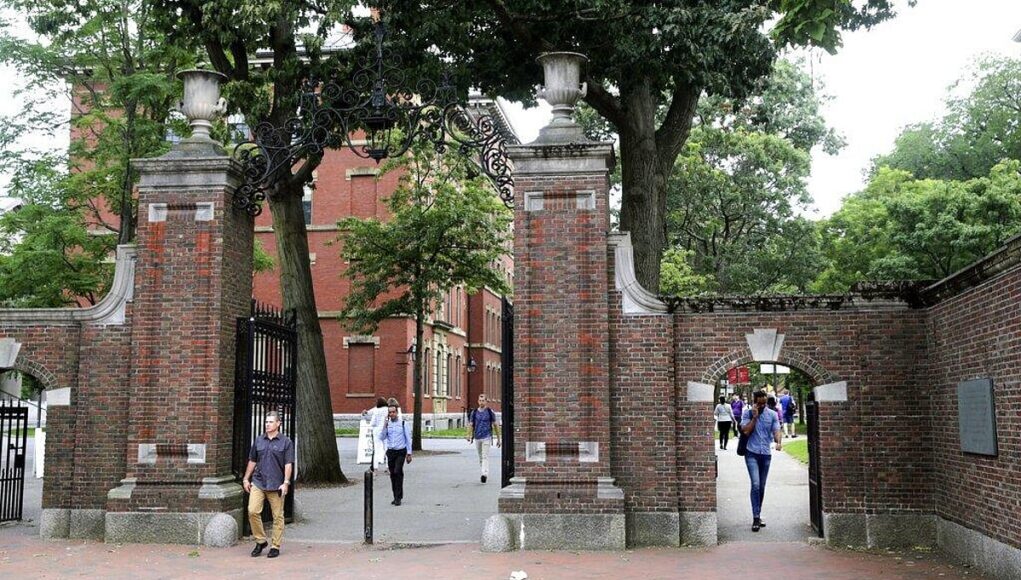Source : NEW INDIAN EXPRESS NEWS
Changes could erase a quarter of the student body
With a $53 billion endowment, Harvard can weather federal funding losses that would cripple other institutions. But this new sanction strikes at the heart of its campus.
Already, the change is causing disarray, as thousands of students consider whether to transfer or risk being in the country illegally. It could wipe out a quarter of the university’s student body, while halving some of its graduate schools and threatening students who work as researchers and teaching assistants. Some sports teams would be left nearly empty.
For many, it has been a time of panicked calls home and huddles with fellow international students. For Kat, a data science student from China, the news comes as she prepares to graduate. Foreigners set to receive degrees from Harvard next week can still do so.
“My biggest fear is whether I would get deported immediately” after graduation, Kat said. She spoke on the condition that she be identified only by her first name out of concern about retaliation. “We’re not sure about our status.”
If the government’s action stands, Harvard would be banned from admitting new international students for at least two school years. Even if it regains its place as a global magnet, top students may shy away for fear of future government reprisals, the school said in its lawsuit.
The university enrolls almost 6,800 foreign students at its campus in Cambridge, Massachusetts, near Boston. Roughly 30% of those come from India and China.
Asked if he was considering restrictions on other universities, President Donald Trump said Friday: “We’re taking a look at a lot of things.”
“Harvard’s going to have to change its ways. So are some others,” the president told reporters in the Oval Office. “We don’t want troublemakers here” from other countries.
A time to weigh other opportunities
In its court filing, Harvard listed some of its most notable alumni who enrolled as foreign students. The list includes Benazir Bhutto, the former prime minister of Pakistan; Ellen Johnson Sirleaf, the former president of Liberia; Empress Masako of Japan; and many leaders of major corporations.
Many of the world’s top students spend years preparing for their college applications, sometimes working with admissions consultants such as Crimson Education, a company named after Harvard’s school color. Crimson clients recently admitted to Harvard were shocked by the government’s action, said Jamie Beaton, a Harvard alumnus from New Zealand who founded the company. But rather than looking for other options, many students quickly shifted to finding a way forward with Harvard, he said.
Still, some current students and those bound for the university in the fall were weighing other opportunities. Two universities in Hong Kong on Friday extended invites to affected students.
“It feels like my world has exploded,” said Fang, a Chinese student who was accepted to Harvard for a master’s program. She also spoke on the condition that only her first name be used out of fear that she could be targeted.
Her student visa was approved just this week. “If America becomes a country that doesn’t welcome me, I don’t want to go there.”
The recent developments forced Aleksandra Conevska, a Canadian graduate student researching climate change, to cancel her summer research and briefly look for jobs in Canada. But her thinking has since shifted, and she says she plans to remain at Harvard.
“I’ve already invested in this country, and I’m not going to give in,” she said.
The U.S. government’s action against Harvard has dominated news in countries around the world, said Mike Henniger, president and CEO of Illume Student Advisory Services, which helps colleges in the U.S., Canada and Europe recruit international students. He is traveling in Japan and awoke to the news Friday with dozens of emails from colleagues.
The reactions from the international community, he said, were incredulous: “’Unbelievable!’ ‘Oh My God!’ ‘Unreal!’”
For incoming freshmen who just got accepted to Harvard — and already committed — the timing could not be worse, but they are such strong students that any top university would want to offer them a spot, he said.
“The bigger story is the students around the country that aren’t a Harvard student, the students that scraped by to get into a state university and are thinking: ‘Are we next?’” he said. “The Harvard kids are going to be OK. It’s more about the damage to the American education brand. The view of the U.S. being a less welcoming place for international students.”
SOURCE :- NEW INDIAN EXPRESS








